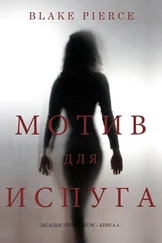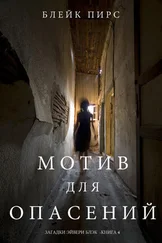“No problem,” Beth said. “My nine thirty client cancelled so I’m not in a hurry. Tell her to take her time.”
“Okay,” Eliza said as she started up the stairs. “Just give us a minute.”
She was about halfway up the first flight of stairs when she wondered if perhaps she should have taken the elevator. The master bedroom was on the third floor and she wasn’t enthused about the hike. Before she could seriously reconsider, she heard a scream from down below.
“What is it?” she yelled as she turned and rushed back down.
“Hurry!” Beth shouted. “Dear god, hurry!”
Her voice was coming from the kitchen. Eliza broke into a run once she got to the bottom of the stairs, tearing through the living room and rounding the corner.
On the Spanish tile kitchen floor, lying in a massive pool of blood, was Penny. Her eyes were frozen open in terror, her body contorted into some horrifying death spasm.
Eliza hurried over to her oldest, dearest friend, slipping on the thick liquid as she approached. Her foot slid out from under her and she landed hard on the ground, her whole body splashing in the blood.
Trying not to gag, she crawled over and put her hands on Penny’s chest. Even with clothes on, she was cold. Despite that, Eliza shook her, as if that might wake her up.
“Penny,” she begged, “wake up.”
Her friend didn’t respond. Eliza looked up at Beth.
“Do you know CPR?’ she asked.
“No,” the younger woman said in a quavering voice, shaking her head. “But I think it’s too late.”
Ignoring the comment, Eliza tried to remember the CPR class she’d taken years ago. It was for treating children but the same principles should apply. She opened Penny’s mouth, tilted her head back, pinched her nose, and blew hard down her friend’s throat.
Then she climbed on top of Penny’s waist, put one hand on top of the other with her palms down, and thrust the pad of her hand down into Penny’s sternum. She did it a second time and then a third, trying to get into some kind of rhythm.
“Oh god,” she heard Beth mutter and looked up to see what was going on.
“What is it?” she demanded harshly.
“When you push on her, blood oozes out of her chest.”
Eliza looked down. It was true. Each compression caused a slow leak of blood from what appeared to be wide gashes in her chest cavity. She looked up again.
“Call nine-one-one!” she screamed, though she knew there was no point.
*
Jessie, who felt unexpectedly nervous, got to work early.
With all of the extra security precautions she had in place, she’d decided to leave for her first day of work in three months twenty minutes early to make sure she arrived by 9 a.m., the time Captain Decker had told her to show up. But she must have been getting better at negotiating all the hidden turns and stairwells because it didn’t take nearly as long as she expected to get to Central Station.
As she walked from the parking structure to the main entrance of the station, her eyes darted back and forth, looking for anything out of the ordinary. But then she remembered the promise she’d made to herself just before she fell asleep last night. She would not allow the threat from her father to consume her.
She had no idea how vague or specific Bolton Crutchfield’s information to her father had been. She couldn’t even be sure that Crutchfield was telling her the truth. Regardless, there wasn’t much more she could do about it than she was already doing. Kat Gentry was checking the tapes of Crutchfield’s visits. She basically lived in a bunker. She’d be getting her official weapon today. Beyond that, she had to live her life. Otherwise she’d go crazy.
She made her way back to the station’s main bullpen, more than a little apprehensive at the reception she’d receive after so long away. Add to that, when she’d last been here she was merely an interim junior profiling consultant.
Now the interim tag was gone and, though she was technically still a consultant, she was paid by the LAPD and got all the attendant benefits. That included health insurance, which if recent experience was any example, she’d need in spades.
When she stepped into the large central work area, comprised of dozens of desks, separated by nothing more than corkboards, she breathed in and waited. But there was nothing. No one said anything.
In fact, no one even seemed to notice her arrival. Some heads were down, studying case files. Others were fixed on the people across the tables from them, in most cases witnesses or handcuffed suspects.
She felt slightly deflated. But more than that, she felt silly.
What did I expect—a parade?
It’s not like she won the mythical Nobel Prize for crime solving. She’d gone to an FBI training academy for two and a half months. It was pretty cool. But no one was going to break out in applause for her.
She walked quietly through the maze of desks, passing detectives she’d worked with previously. Callum Reid, in his mid-forties, glanced up from the file he was reading. As he nodded at her, his glasses almost fell off his forehead, where they had been resting.
Twenty-something Alan Trembley, his blond curls messy as usual, was wearing glasses too, but his were at the bridge of his nose as he intently questioned an older man who appeared to be drunk. He didn’t even notice Jessie as she walked past him.
She reached her desk, which was embarrassingly tidy, tossed down her jacket and backpack purse, and took a seat. As she did, she saw Garland Moses slowly amble from the break room, coffee in hand, as he started up the stairs to his second-floor office in what was essentially a broom closet.
It seemed a rather unimpressive workspace for the most celebrated criminal profiler the LAPD had but Moses didn’t appear to care. In fact, he couldn’t be bothered about much. Over seventy years old and working as a consultant for the department mostly to avoid boredom, the legendary profiler could do pretty much whatever he wanted. A former FBI agent, he’d moved to the West Coast to retire but had been convinced to consult for the department. He agreed, as long as he could pick his cases and work his hours. Considering his track record, no one objected at the time and they still didn’t now.
With a shock of unkempt white hair, leathery skin, and a wardrobe circa 1981, he had a reputation of being crusty at best and downright surly at worst. But in Jessie’s one significant interaction with him, she’d found him to be, if not warm, at least conversational. She wanted to pick his brain more but was still a bit frightened to engage him directly.
As he shuffled up the stairs and out of sight, she glanced around, looking for Ryan Hernandez, the detective she’d worked with most often and whom she felt borderline comfortable calling her friend. They’d even recently started using each other’s first name, a huge deal in cop circles.
They had actually met under non-professional circumstances, when her professor invited him to speak to her graduate criminal psychology class in her final semester at UC-Irvine last fall. He’d presented a case study, which Jessie, alone in the class, had been able to solve. Later, she learned she was only the second person ever to figure it out.
After that, they’d stayed in touch. She’d call him for help after she began to grow suspicious of her husband’s motives but before he tried to kill her. And once she’d moved back to DTLA, she was assigned to Central Station, where he was based.
They worked several cases together, including the murder of high society philanthropist Victoria Missinger. It was in large part Jessie’s discovery of the killer that had garnered the respect that secured her the FBI gig. And it wouldn’t have been possible without Ryan Hernandez’s experience and instincts.
Читать дальше












